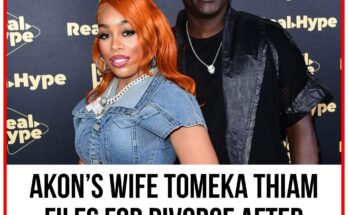Tupac’s Brother EXPOSES Secret Tapes About Tupac Shakur – Alive and in Hiding From Diddy | HO

For nearly three decades, the death of Tupac Shakur has loomed as one of hip hop’s greatest mysteries. The official story—Tupac gunned down in a Las Vegas drive-by, six days fighting for his life, then gone forever—has been repeated in documentaries, news specials, and countless interviews.
But now, new revelations from Tupac’s own brother, Mopreme Shakur, threaten to shatter the narrative we’ve all accepted as fact. And at the center of this storm sits Sean “Diddy” Combs, whose name is surfacing in ways that could rewrite music history.
A Brother’s Doubt: Mopreme Shakur Breaks His Silence
It’s one thing to hear wild theories from fans and internet conspiracy theorists. It’s another when the doubts come from Tupac’s own flesh and blood. Mopreme Shakur, the man who grew up alongside Tupac, recently sat down for a televised interview with Piers Morgan. Calm, collected, and deadly serious, Mopreme made it clear: he’s never been satisfied with the official version of his brother’s death.
When asked about Diddy’s repeated denials of involvement in Tupac’s murder, Mopreme didn’t mince words. He recalled a direct phone call from Diddy in 2008, more than a decade after Tupac’s shooting.
The call came through radio host Big Boy, with Diddy reaching out to the Shakur family, apparently to clear his name. “He basically said he ain’t have nothing to do with my brother’s murder,” Mopreme recounted. But the call didn’t bring closure. If anything, it deepened Mopreme’s suspicions.
“Innocent men don’t usually pick up the phone years later to reassure the victim’s family that they didn’t do it,” Mopreme observed. “They move on. But Diddy? He couldn’t ignore it. He was rattled.” Mopreme listened, but didn’t buy it. His response was short, simple, and devastating: “The truth always comes out.”
Diddy Under Fire: Federal Raids and a Crumbling Empire

Fast forward to 2025. Diddy’s empire is under siege. Federal racketeering charges hang over his head, FBI raids have torn through his mansions coast-to-coast, and former insiders are breaking their silence. The mogul who once seemed untouchable now faces the possibility of losing everything.
It’s in this climate that Mopreme’s words take on new weight. For years, Diddy denied any involvement in Tupac’s murder, but investigators have reportedly been sitting on explosive material all along—interrogation tapes where Diddy’s name comes up 47 times in connection with the shooting. These tapes feature Keefe D, the man now facing charges tied to Tupac’s death, allegedly detailing how Diddy offered millions for both Tupac and Suge Knight’s heads.
Why would prosecutors hold onto these tapes for decades? Why would Keefe D’s statements be considered credible enough to charge him based on his own confessions? With Diddy’s current legal troubles, those old recordings don’t look like forgotten history—they look like the missing puzzle piece in hip hop’s biggest unsolved case.
The Cuba Connection: Did Tupac Really Escape?
But the story doesn’t end with secret tapes and old suspicions. Agents raiding Diddy’s mansions reportedly stumbled upon documents with a single word stamped on them: Cuba. For most, that might seem innocuous. But in the world of Tupac conspiracy theories, Cuba is loaded with meaning.
Tupac’s aunt, Assata Shakur, has lived in Cuban exile since 1984, after escaping a U.S. prison. That fact alone has fueled rumors for years that Tupac may have faked his death and joined her on the island. Michael Nice, Tupac’s former bodyguard, claimed he was part of an operation to smuggle Tupac out of Las Vegas, switching bodies at the hospital, arranging a private jet, and ultimately delivering him to Cuba under Fidel Castro’s protection. Nice vanished before he could release proof, but his claims linger.
Now, with Cuban references allegedly found in Diddy’s private files, the theory that Tupac survived suddenly feels less far-fetched. If Diddy kept documents linking him to Cuba, it raises a chilling question: Did he know Tupac was alive? Was he part of an effort to keep that secret buried? Why else would there be Cuban files in his possession unless he was monitoring someone or something connected to the island?
For years, residents in Havana have whispered about sightings—a tall man with Tupac’s build moving through side streets, slipping into cafes, vanishing before anyone could snap a clear photo. Grainy clips, shaky eyewitness accounts, and rumors have piled up about a legend hiding in plain sight.

Official Records: Anomalies and Missing Pieces
The official records surrounding Tupac’s death only add fuel to the fire. Start with the coroner’s report, which somehow listed Tupac’s height and weight incorrectly. These are basic details, the kind any examiner should get right, especially in a case watched by the entire world.
Then there’s the cremator who reportedly handled Tupac’s body—he retired immediately afterward. Not a year later, not months later. Immediately. Who steps away from their career right after handling the most high-profile case of their life?
And then there’s the Vegas shooting itself. September 7th, 1996, the night of the Tyson fight. The strip was packed, thousands of people, cameras everywhere. Yet somehow, nobody saw the shooter. Nobody caught a clean glimpse of the gunman or even the vehicle. Suge Knight, sitting beside Tupac, has hinted for years that the official story doesn’t line up. In 2014, Suge told TMZ, “Why you think nobody been arrested? Cuz Tupac not gone.” Was he trolling, or was he planting a truth in plain sight?
Stack these anomalies next to each other, and they start to form a disturbing pattern. The coroner’s report listed the wrong height and weight. Witnesses who were vocal at first went silent, others vanished. The cremator retired after Tupac’s case. The Vegas shooting, one of the busiest nights of the year, yet not one reliable eyewitness. All these pieces might look random individually, but together they paint a picture of something bigger.
Diddy’s Empire: Control, Silence, and Intimidation
As federal agents pick apart Diddy’s empire, the old conspiracy theories don’t seem so outlandish anymore. Prosecutors aren’t accusing him of petty crimes—they’re framing Bad Boy Records as a criminal enterprise, racketeering, coercion, exploitation. The deeper you look, the more it feels like Bad Boy wasn’t just a hit factory—it was a machine built to control, silence, and intimidate.
Insiders describe a world where saying no to Diddy simply wasn’t an option. Favors turned into debts, debts spiraled into dangerous territory. People who tried to resist suddenly changed their stories, withdrew their statements, or disappeared. Doesn’t that sound familiar? It mirrors what happened around Tupac’s case—evidence that went missing, witnesses who went silent, a case that should have been solved with multiple leads but somehow stalled for decades.
Missing Witnesses: Then and Now
The parallels between Tupac’s case and Diddy’s current legal troubles are hard to ignore. Even now, in 2025, missing witnesses are a problem. Victim number three in a present-day case has reportedly vanished, gone without a trace, unreachable even to her own attorney.
If people can disappear under federal protection and non-stop media attention today, what does that say about 1996? Back then, when the industry was wilder and Diddy’s operation was desperate to dominate hip hop, how easy would it have been for witnesses to go missing, for evidence to get buried, for the truth to be pushed aside?
Maybe the Vegas investigation wasn’t sloppy at all. Maybe it was sabotaged—by people with money, reach, and dangerous connections.
An International Conspiracy?
If Tupac really did fake his death and escape to Cuba, it’s not the kind of stunt you pull off with a few friends and a getaway car. That takes serious coordination, allies, financial backers, international contacts—the kind of infrastructure that spans multiple countries and involves people in high places.
Protection like that doesn’t come free. Cuba’s intelligence agency doesn’t casually safeguard international celebrities. There would have to be something in it for them—propaganda value, information exchange, political leverage, maybe even financial agreements.
Now layer Diddy into this picture. If those so-called Cuban files really exist, and if they suggest he had knowledge or involvement, we’re not just talking about covering up a murder. We’re looking at something way bigger—a multinational effort requiring silence across hospitals, coroners, law enforcement, airport security, immigration systems, even government offices.
Think about the sheer number of people who would have had to keep their mouths shut for nearly 30 years. Nurses, doctors, police, airline staff, Cuban officials, intelligence operatives—and none of them talked. That kind of silence doesn’t hold unless the stakes are life and death.
If Diddy was even partially aware of or connected to these networks, then he wasn’t just protecting himself. He was helping maintain a narrative so powerful it reshaped music history.
The Fallout: Is the Truth Finally Coming Out?
The story of Tupac’s death isn’t just about one man. It’s about an entire generation, about the legacy of hip hop, about who held the power and who was silenced. If the Cuba files aren’t just evidence of survival, but evidence of an international conspiracy involving intelligence agencies, criminal organizations, and industry titans, the fallout would be catastrophic.
Imagine prosecutors opening those files in court and pulling back the curtain on nearly three decades of secrecy. That wouldn’t just be the biggest revelation in hip hop—it would be one of the most shocking scandals in modern history, blurring the lines between entertainment, crime, and geopolitics.
And if that moment comes, if those files see the light of day, the fallout won’t just hit Diddy. It’ll hit everyone connected, everyone who helped keep the silence, everyone who built their success on a story that might not be true.
Conclusion: The Biggest Secret in Music History?
So, do you believe the official version—the neat, case-closed story we’ve been told for almost 30 years? Or do you think there’s more—layers that were hidden, voices that were silenced, truths that were buried?
If even a fraction of this is true, then we’re not just talking about the biggest cover-up in hip hop. We’re talking about international espionage, a deception so large it redefined culture itself. As federal agents pick apart Diddy’s empire, we may finally find out what really happened.
Until then, the story isn’t finished. It’s only getting started.

